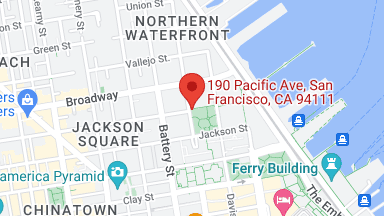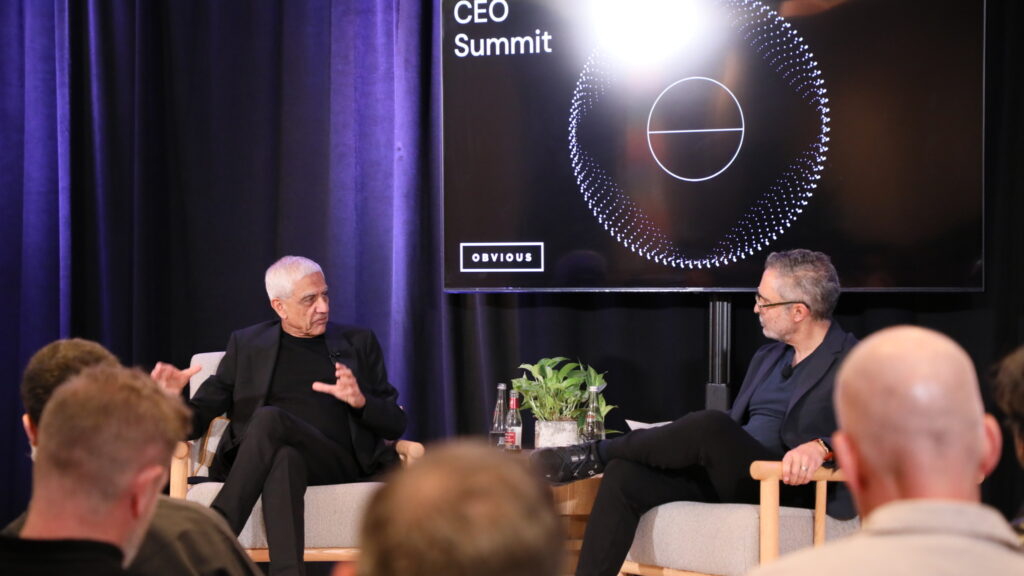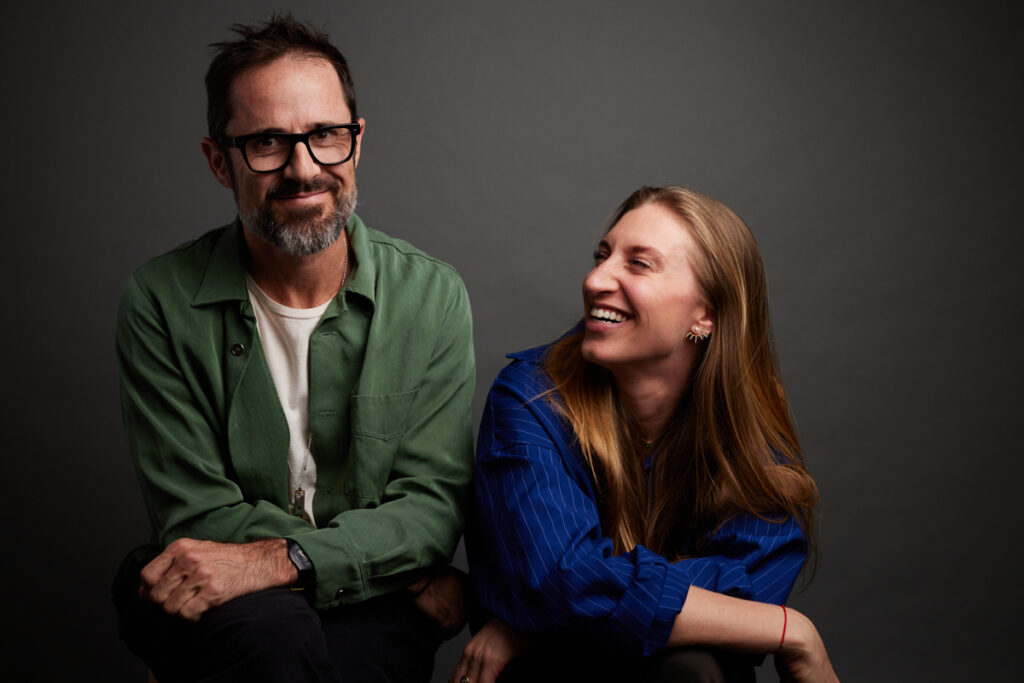Food Is Medicine, and Neka Pasquale Wants to be Your Doctor.
The story behind Urban Remedy founder Neka Pasquale’s quest to deliver a sensual, colorful, and healing experience with food.
Obvious |
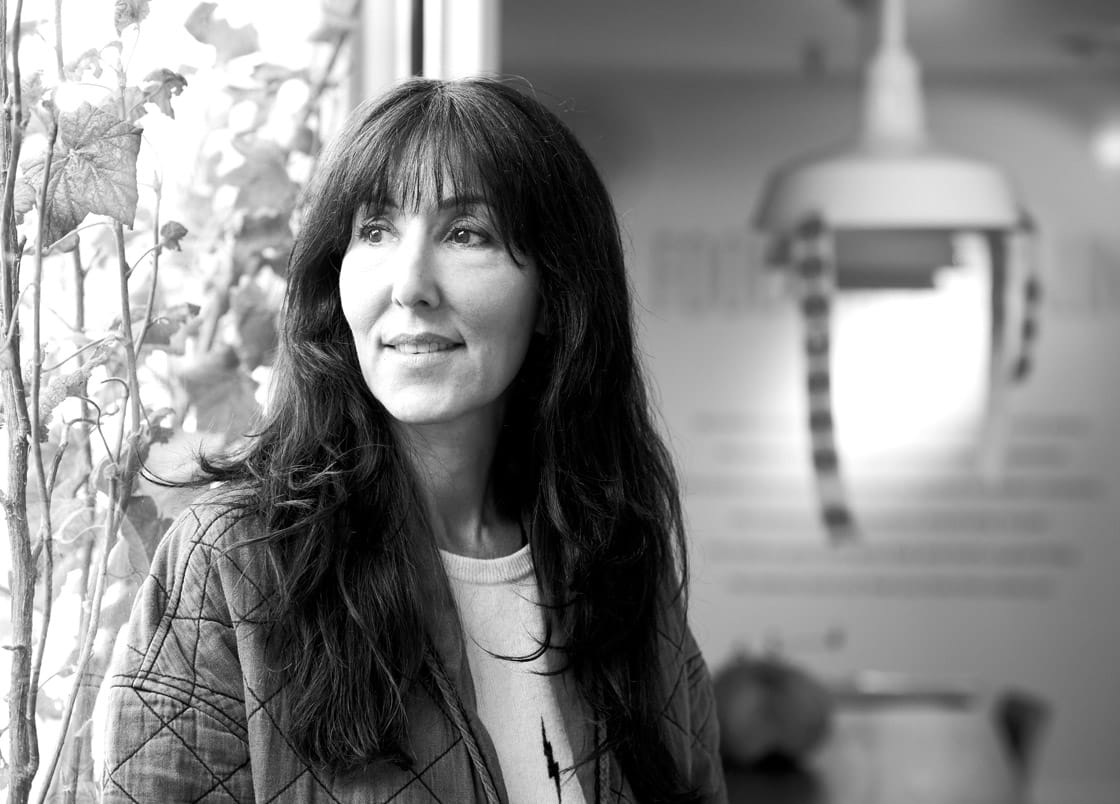
I’d barely crossed the threshold of her office when Neka stepped on her radiant soapbox. The message was crystal clear and devotedly consumer-centered.
“Big Food isn’t truly thinking about the customer — they’re thinking about what’s easiest to make and marketing it as ‘real food’ or ‘healthy’ or ‘natural.’ We’re creating clean food that naturally promotes health and wellness and helps people be vibrantly healthy. The standard American diet doesn’t do it.”
While the Urban Remedy regimen isn’t the standard American diet, it sure is headed in that direction. Riding a consumer-demand wave for local, fresh, organic, and plant-based foods, and informed by an increasing body of research, Urban Remedy is growing and showing no signs of letting up.
With a founder and evangelist like Neka, it’s tough not to be a believer.
Hitchhiking, Rattlesnakes, and Barbados
It’s little surprise that this all started with Neka in nature. After they met hitchhiking in Hawaii, her parents moved to the Trinity Alps in Humboldt County. Two hours from the closest town, and without any electricity, they became “serious hippies.”
“My mom told me I ran around with bells on my ankles to scare away the rattlesnakes — it was a different time [laughing]. What an amazing way to start my early years, in pure nature.”
She learned a great deal about entrepreneurship from them both. Neka’s mother started her own health and wellness spa in the early 1980s, which she still owns.
“I watched her ups and downs, [what it meant] being a female business owner. I saw everything she went through, and it taught me a lot.”
Her father, meanwhile, opened a number of restaurants and helped other family members do the same on the East Coast — many of whom maintain those businesses today. “He would do things, get bored, and move onto the next thing. He was a renaissance man — artist, writer, cook.”
After graduating from high school, she and her father sailed around the Caribbean. One day in Barbados, her father asked out of the blue if she wanted to live there. She said yes, and they stayed for a year. The exposure to different cultures — specifically through food — served as a sizable influence on her, personally and professionally.
“He exposed me to a lot of different cultures. My dad loved food and was a great cook. We’d get street food at the underground places — we never went to fancy places.”
The Ingredients Come Together: Wellness, Food, and Entrepreneurship
After returning, Neka eventually headed to San Francisco State’s pre-med track, finding her way to its holistic health program — the only one in the country. After graduating with a pre-med and psychology degree, she enrolled in a school of Chinese medicine. It turned out to be a much greater challenge than she had anticipated.
“It was a life-changer for me. I didn’t realize how difficult it was going to be. A four-year masters program, 25% of the people drop out, learning the materia medica in Chinese, and Latin, and English … it changed something in me. It was the first time where I felt I accomplished something. And I knew if I could do this, I could do anything.”
Although she classifies herself as having been one of the younger, more “immature” students in the school, she knew she’d found her calling when it was time to start treating patients.
“I had a knack for connecting with people. I had found my thing; I loved helping them. It was a pivotal moment in my life.”
Two years later (and with ample assistance from family and friends), Neka got her acupuncture practice up and running. She was supporting herself financially, and happy. “I hate spreadsheets and numbers, I’m not super-analytical — but I have a business mind about the bottom line. It was nice to be making money and doing well.”
Despite early success, she was driven by curiosity to continue learning about other healing modalities, like food and diet. Neka took more classes in functional medicine and eventually became first-line-therapy certified, enabling her to make more holistic diagnoses of her patients’ pain, specifically through the lens of inflammation (BMI, water retention in cells, etc.).
It was also personal.
Neka was diagnosed with polycystic ovarian syndrome, and her doctors suggested medication to reduce the cysts (which are, by definition, immature follicles). She declined and instead drastically altered her diet to include juicing and low-glycemic raw foods. When she returned six months later for a checkup, the follicles were gone.
She continued researching the potential effects of raw foods and antioxidants, minerals, and healthy fats. When she began recommending diets rich in these elements to her patients experiencing pain, she saw positive effects in nearly 100% of them. “Some felt 10% better or 80% better, but everyone felt better.”
Soon after, she began holding patient retreats. One of the first was a four-day gathering at Stinson Beach.
“I did all of the food. Because I love to cook, I wanted to make it taste great and be a sensual eating experience — flavors, colors, textures. We did detox, yoga, meditation, and more — every person that came felt amazing afterward.”
In particular, one difficult patient suffering deep chronic pain had a life-changing experience after just four days at the retreat. Neka realized that she could shift chronic conditions, especially with inflammation response, very quickly. She was inspired — and shocked. “I didn’t expect [the response to be so dramatic].”
She also recognized that it’s not just about diet.
“Eating healthy is great, but if you have high stress levels and you’re not sleeping, it can only help so much. Do you love yourself? Are you in a loving community, and with healthy relationships and partnerships? All those pieces together can help deliver health.”
Neka ran more and more retreats, and despite giving away her recipes, the patients wanted her to make the goods herself because they simply tasted better.
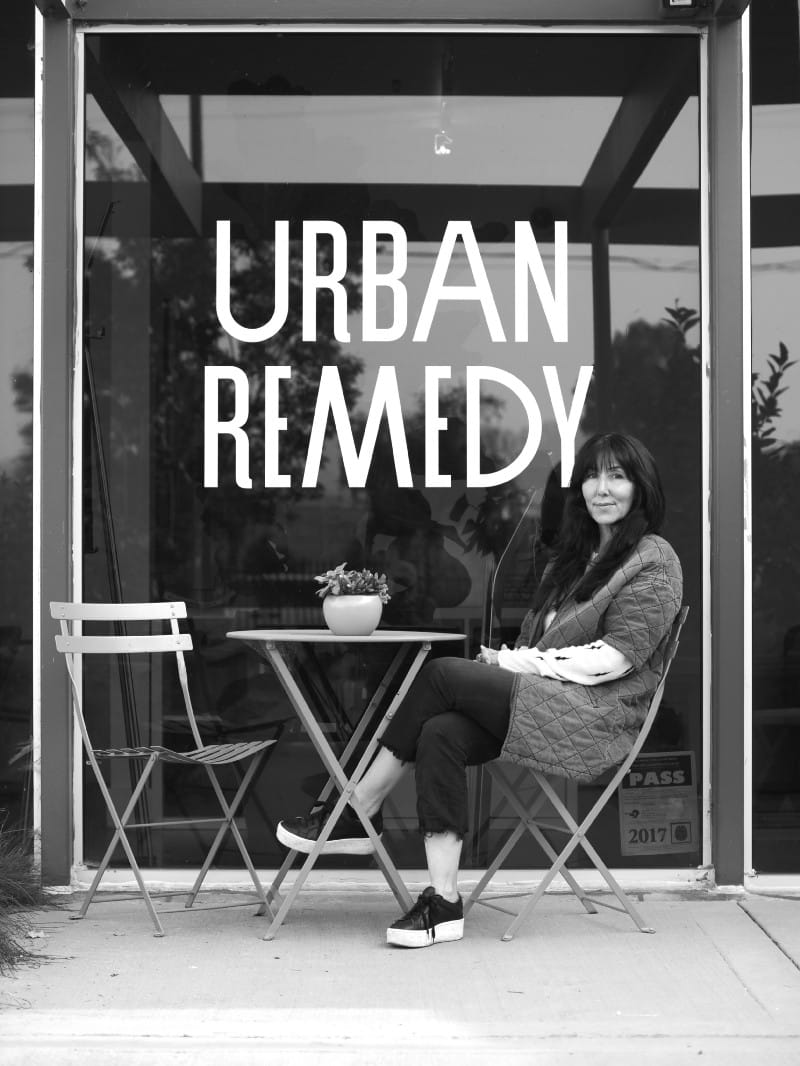
Enter The Dragon(fruit)
With her acupuncture practice still running full-tilt, Neka started a food business on the side. Two days a week she left the office early for rented space in a commercial kitchen with a few juicers. “We’d juice and make a few different kinds of snacks. I’d bring them into my office, and they’d sell out in a day.”
It soon became too much to manage, and she shut down her practice. Not long after, she officially launched Urban Remedy online, and the same day it went live and she hosted the launch party, Neka found out she was pregnant. All of a sudden, she “was birthing these two babies.”
The momentum was growing. An acupuncture patient and well-known raw foods chef restaurateur wanted to collaborate on a food-delivery service, so Neka rented a bigger commercial space in San Rafael to accommodate. The deal fell through at the last minute, and she was stuck with the space. “I was so bummed. When you’re doing something on your own, there’s more pressure. But I decided to keep going because I had to build out that kitchen.”
Despite the early success, Neka was dealing with pressure personally.
“My marriage was falling apart. I’m taking calls with lawyers on mute while my son is either crying or breastfeeding. I was thinking ‘What am I going to do?’”
Then the phone rang.
She had recently hired Henry Wong to help write a business plan to secure additional funding. A Los Angeles-based incubator called on Henry’s recommendation, and they wanted to invest $1 million. “At that, point I was like ‘Whoa, $1 million? This is so exciting!’ I took their money, but all they wanted to see were super-high sales. There were a number of problems, and it was a great lesson for me in making sure we have a strong foundation, not just focusing on growth. That was a crazy two years.”
In 2011, Neka successfully built out the San Rafael location — only to grow out of it in six months. “It was total mayhem because I was the CEO — and still did all the HR, making the recipes, figuring out how to do everything. Our office manager helped, but I was basically doing everything.”
After securing an even larger kitchen facility in Richmond, the company’s current home, she received additional funding.
Around then she was also introduced to a man named Paul Coletta.
“He started stopping by our office in San Rafael; he’d just show up and taste the food and juices! He said, ‘I think you need a CEO.’ I was worried because of the stories you hear about new CEOs ruining company values, but he said, ‘I respect your vision and the foundation you’ve built — I want to respect that.’”
Paul, Urban Remedy’s CEO today, came on and helped build out their Richmond facility. They began opening stores, delivering more product across channels, and — after a rebrand — telling their story everywhere: Food as Medicine.
“That was my dream — to help people understand that there’s another way to heal.”
Celebrities, Corporate Investors, and Staying True to the Mission
And then came the supermodels.
In 2014 Neka was introduced to Cindy Crawford by a mutual friend. They had great chemistry, built largely on a mutual love of the product and their authentic connection around it. Linking up with a celebrity, while never an explicit goal of hers (“In my mind, I thought this would be a niche product for weird Marin hippies…”), had unintended benefits for Neka personally: “We did some photo shoots and videos together, and it was a huge turning point for me because it took me out of my comfort zone. It felt like an SNL skit! I felt like a robot at first, it was so awkward trying to pose with Cindy Crawford.”
“Eventually I let go of my insecurities and took the opportunity. To just be me and speak my voice, and be a woman in my power that feels it’s OK to express myself. And all of a sudden I felt like I turned on, and had the chance to show up.”
She continues: “I [recently] spoke in front of hundreds of people. My friends thought I would be the last person to do this. It all started with Cindy.”
Kate Upton, after having been a customer for years, also connected with Neka and her team years later. “One day I got a cold call from her sister telling us about her own platform, Strong 4 Me, and they wanted us to do the food for the platform. It was flattering that she thought of us. The most important part: She was authentically eating our food for years. It just felt right.”
Around the time Upton engaged, another big name came calling: General Mills. Its investment arm, 301, wanted in. This was different for Neka and initially felt out of alignment with the mission of Urban Remedy.
“Paul thought I was going to freak out. But a light bulb went off when I spoke to [former Annie’s CEO] John Foraker, who told me what happened after their acquisition: They were actually making more farms organic. ‘Maybe this is the way to change Big Food,’ I thought. And how great if we can use their expertise in marketing, distribution, and operations.”
The Role of Heritage and the Road Ahead
While her journey (and our conversation) was a winding one, we ended up right where we started: with her customers.
“One of the biggest problems is cost. The choice is Urban Remedy vs. McDonald’s? I think our food is great value, but affordability is one thing we want to address.”
Neka has a deep empathy for cultural traditions and works hard to innovate within the constraints of her business. “So many things are passed down from our parents — as a Jewish and Italian person, I know it! Kugel and latkes are more than just food for my grandparents. I respect that. So I try to play with more traditional food recipes.”
She continues: “We did a pho soup with zucchini noodles and posted about it on social media. Someone called it cultural appropriation — and I said ‘I’m not trying to steal anything, I love the flavors and textures, I’m just trying to make it healthy in my own way.’”
Looking up at the clock, we both realized we’d gone way over the allocated time, and she had to move on to her next meeting. But not before offering me a few signature shakes and salads to-go, with a side of inspiring parting words:
“We’ve made sickness normal. Like it’s a normal thing. It used to be normal to be healthy. We’re in a culture of illness, and people feel disempowered because they don’t have the tools and the knowledge. Plants, fruits, and vegetables are good for us. Antioxidants, vitamins, minerals — they’re good for us. Fads come and go, but whole food in its natural state really feeds us. You’re never going to process food in a way that’s better than what nature has done forever.”
